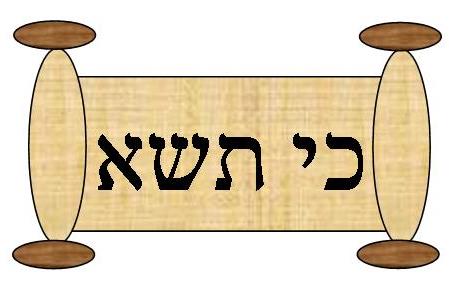The Torah portion Ki Tisa deals with, among other things, the episode of the Golden Calf. In this episode, various contradictory viewpoints are expressed regarding what are appropriate characteristics of a leader, and also regarding the thorny question of the connection between a leader and the masses.
We already know from the beginning of the book of Exodus that Moses was not a man of words but rather heavy of mouth and tongue and had clumsy lips , while about Aaron it is said there that he says what there is to say . Because of this, G-d instituted Moses as the leader and Aaron as his spokesperson. This almost begs the question: Why this complicated solution? After all, it would have been much simpler to make Aaron himself the leader, especially since he was the firstborn and Moses the younger brother.
Many answers have been given to this question. One of the most to-the-point answers is that G-d wished to prevent the possibility that the masses of Israel would view Moses as a god. Therefore G-d purposely chose a leader for whom an imperfection would be obvious at first glance, and about whom it would thus be clear that he could not possibly be a god. Pharaoh was considered by the Egyptians to be a god, and Moses was going to overpower Pharaoh. What could be more natural than the conclusion that someone who is victor over a person who is considered to be a god, possessor of a boundless empire, is himself a god? Because of this problem, it was appropriate to have an imperfect leader, in order to demonstrate to the Israelites that it was not Moses who was victor over Pharaoh, but rather G-d. Moses himself is only flesh and blood, and, despite all his admirable qualities, only human, and even has a physical imperfection.
However, there is more to Moses being chosen as the leader over Aaron. The deep difference between the two of them is pointedly demonstrated in the episode of the Golden Calf. Here, it is made clear that Aaron, who fulfilled his role as long as he followed Moses’ orders, failed miserably when Moses was absent. The commentators who explain as follows are definitely correct: Aaron had no intention whatsoever toward worship of another god, rather, he wished to make a sort of seat for the true G-d. Further, Aaron did not rush to do even this. To the contrary, he first tried to buy time, hoping that the demanding masses would calm down. He suggested: Remove your wives’, sons’ and daughters’ gold earrings, and bring them to me in the hope that the people would not want to do this, or that it would take a long time and in the meantime Moses would return. But these things did not occur, and Aaron found himself swept along the tide of the events and the people’s demands. Even then he still attempted to find a compromise between the enthusiasm of the masses and what was appropriate. Thus, even after he made the Golden Calf and built an altar before it, he announced: Tomorrow is a holiday dedicated to G-d. He instituted a holiday from his own initiative; however, he thought that by doing so he could direct the people to the proper path. In order to remove all doubt from the masses, he announced that the holiday was for G-d. However, the people acted as they wished. But even when Aaron saw the immoral consequences of his efforts, he was not inspired to stand in the breach and rebuke the people. Perhaps in the depths of his heart he wanted to, but feared the masses, or perhaps he lost his head completely.
Professor Moshe David Her of Hebrew University explains: Moses is the exact opposite of Aaron. He recovers amazingly quickly from his astonishment at the report G-d gives him of the terrible news about the making of the Golden Calf. All of his hard work with the nation had just collapsed and crumbled in one moment, yet he reacts to G-d’s message, begging G-d to retract this intention. Indeed, his prayers are answered. Upon descending from the mountain, Moses made a decision on his own, without even asking G-d’s permission, and broke the Tablets of the Law, which were of G-d’s making and written by G-d. Similarly, Moses performs his other actions of his own volition (burning and grinding the Calf; punishing the Israelites). Yet at the same time he informs G-d that if G-d does not forgive the sin of the Israelites, Erase me from the Book which You have written. At no point in the episode did Aaron attempt to suggest that he himself would pay most of the price for what occurred. On the contrary, we have seen that he tried with his mumbled excuses to place the blame on the nation. This is a model of a weak leader, who went along with the people from the start, and who was not willing to take responsibility upon himself after the fact. Indeed, Moses is his complete opposite. He is capable of making decisions that are difficult, bold, painful and unpopular not only with the people but perhaps even with G-d. By the same token, he is always willing to take complete responsibility upon himself, not only for what he did, but even for something he did not to and which took place in his absence and without even his knowledge; he is willing to at any time to sacrifice his own life for the people.
Prepared by Devorah Abenhaim







